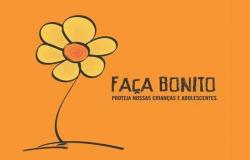Four months after the enactment of the tax reform, the government sent the first complementary bill regulating taxes on consumption. The Minister of Finance, Fernando Haddad, delivered the proposal to the president of the Chamber of Deputies, Arthur Lira (PP-AL), in the early evening of this Wednesday (24).
The proposal foresees an average Value Added Tax (VAT) rate of 26.5%, which may vary between 25.7% and 27.3%, informed the extraordinary secretary for Tax Reform, Bernard Appy. Currently, Brazilian goods and services pay, on average, 34% in federal, state and municipal taxes.
With 306 pages and around 500 articles, the complementary bill needs an absolute majority, 257 votes, to be approved. Speaking in the Green Room of the Chamber of Deputies, Haddad said he had received Lira’s commitment to vote on the proposal in the House’s plenary session until the mid-year legislative recess, scheduled for mid-July.
“People might be a little scared. There are around 300 pages and 500 articles, but this replaces a multitude of laws that are being revoked and replaced by one of the tax systems that will be one of the most modern in the world”, declared the minister.
According to Haddad, the average rate may be lower than the estimated 26.5% because the Brazilian tax system will be completely digitalized, which curbs fraud and increases the revenue base.
“There will be a virtuous combination between two elements of this reform. The first is the adoption of a value-added tax, which replaces several taxes. The second element is that we will have a fully digital tax system. With the expansion of the taxpayer base, we will be able to have a more reasonable rate”, commented the minister.
Other benefits highlighted by Haddad are the end of cumulative (cascading) taxes and the non-exportation of taxes.
“Even with the exceptions that the constitutional amendment brought, the rate can be reduced [em relação a hoje]. Investments in Brazil will be exempt, exports will be exempt, the most popular products, whether food or industrialized products consumed by the poorest, will have a better price”, added Haddad.
Senate
After delivering the project to the Chamber, Haddad went to deliver a printed copy to the official residence of the president of the Senate, Rodrigo Pacheco (PSD-MG). This Thursday (25), at 10am, Secretary Appy and department technicians will hold a press conference to explain the details of the tax reform regulations.
The project delivered this Wednesday includes the regulation of IBS; the Contribution on Goods and Services (CBS), a federal tax on consumption; the Selective Tax, which will apply to products that pose a risk to health and the environment; and the Tax on Industrialized Products (IPI), which will be levied on goods competing with those produced in the Manaus Free Trade Zone.
The most controversial topics are the exemption from the basic food basket and the list of products that will be charged the Selective Tax, details of which will be revealed this Thursday. The reform approved last year left it up to the complementary bill to decide whether, for example, processed foods rich in sugar will be charged the tax.
Upon leaving the meeting, Haddad said he was confident in the approval of the project later this year, despite recognizing that the Senate will have difficulty voting on the proposal because of the municipal elections in October. “As happened last year, no one said that an amendment that had been expected for 40 years could be enacted. And President Pacheco presided over the promulgation ceremony for the happiness of the country, which had been waiting for this for many decades,” he stated.





